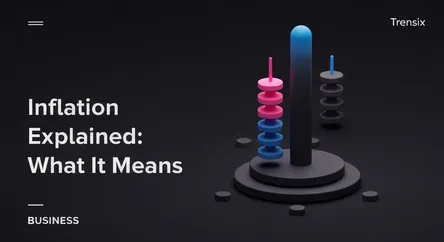Business
Inflation Explained: What It Means

Learn what inflation is, why it's a major economic topic, and how the rising cost of living impacts your personal finances and purchasing power.
What is it?
Inflation is the rate at which the general price of goods and services rises, causing a fall in the purchasing power of money. Simply put, your dollar buys less today than it did yesterday. It's most commonly measured using the Consumer Price Index (CPI), which tracks average price changes for a basket of common goods. While a small, steady rate of inflation is often considered healthy for an economy, high inflation creates instability for businesses and consumers.
Why is it trending?
Inflation is a major global headline due to a perfect storm of factors. Post-pandemic supply chain disruptions met strong consumer demand, pushing prices up. Geopolitical conflicts have further squeezed energy and food supplies, adding to the pressure. In response, central banks worldwide are raising interest rates to cool their economies. This policy response keeps inflation at the forefront of financial news, political debates, and household budget discussions, making it a persistent and widely discussed trend.
How does it affect people?
The most direct impact is a higher cost of living, as essentials like groceries, fuel, and housing become more expensive. This erodes the real value of savings held in cash, as the money's future purchasing power declines. While wages may rise, they often lag behind price hikes, meaning a person's real income can decrease. This forces individuals and families to make tougher financial choices and disproportionately impacts those living on fixed incomes, such as retirees.